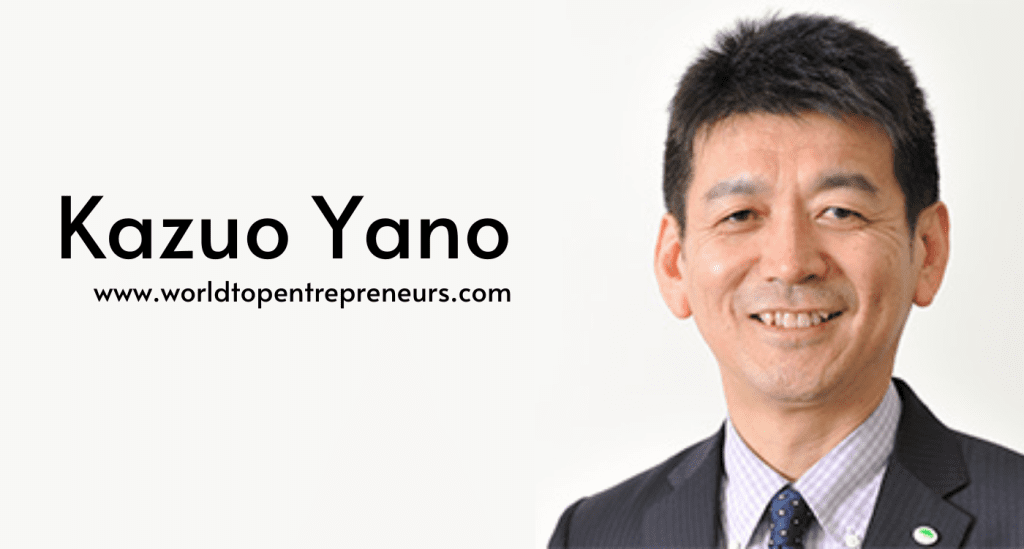In the ever-evolving world of technology and electronics, few names are as significant as NEC Corporation. At the heart of this influential company lies the legacy of Kazuo Yano, a visionary whose ideas and leadership helped shape the landscape of modern electronics and IT. Yano’s journey from a passionate innovator to the founder of a global technology powerhouse is a testament to his foresight, dedication, and groundbreaking contributions to the field.
Early Life and Education
Kazuo Yano was born on May 15, 1921, in Yokohama, Japan. Growing up in a rapidly modernizing Japan, Yano was exposed to a culture that was beginning to embrace technological advancements with enthusiasm. His father, a successful businessman, recognized the importance of education and encouraged his children to pursue knowledge and innovation.
Yano’s early education was marked by an intense curiosity about the emerging fields of science and technology. He attended Yokohama High School, where his aptitude for mathematics and engineering became apparent. His academic excellence earned him a place at the prestigious University of Tokyo, where he pursued a degree in Electrical Engineering. The university’s rigorous program provided Yano with a solid foundation in electronics and communications, setting the stage for his future endeavors.
During his time at the University of Tokyo, Yano was exposed to the rapidly advancing field of electronics. The post-war era in Japan saw significant technological development, and Yano was deeply influenced by the spirit of innovation that characterized this period. His studies and early experiences fostered a strong belief in the potential of technology to transform industries and improve lives.
The Birth of NEC Corporation
Kazuo Yano’s vision for the future of technology took shape in 1899 when he founded the Nippon Electric Company, which would later become NEC Corporation. The company was established during a period of rapid industrialization in Japan, and Yano’s goal was to create a business that would drive technological advancement and contribute to the country’s economic growth.
In the early years, NEC focused on manufacturing and selling electrical equipment and telecommunication systems. Yano’s commitment to innovation and quality quickly set the company apart from its competitors. He recognized the potential of emerging technologies and was determined to leverage them to create cutting-edge products.
One of NEC’s first major successes was the development of telecommunication systems that significantly improved communication infrastructure in Japan. These early products laid the foundation for NEC’s future growth and established the company as a key player in the electronics industry.
Innovations and Breakthroughs
Under Kazuo Yano’s leadership, NEC Corporation became synonymous with innovation and technological excellence. Yano’s approach to business was characterized by a relentless pursuit of cutting-edge technology and a commitment to delivering high-quality products.
One of the company’s notable innovations was its early work in semiconductor technology. In the 1950s, NEC began developing semiconductor devices, recognizing their potential to revolutionize electronics. Yano’s vision for the future of semiconductors was instrumental in positioning NEC as a leader in this field.
NEC’s development of the first Japanese-made transistor in 1957 was a significant milestone. This achievement not only demonstrated the company’s technical capabilities but also highlighted Yano’s foresight in recognizing the potential of semiconductor technology. The success of this transistor paved the way for further advancements and solidified NEC’s reputation as a pioneer in the electronics industry.
In the 1960s, NEC continued to push the boundaries of technology with the introduction of its first mainframe computer. The computer, known as the NEAC-1101, was a groundbreaking product that marked NEC’s entry into the burgeoning field of computing. Yano’s emphasis on research and development enabled NEC to produce a reliable and high-performance computer system that met the needs of various industries.
The 1970s saw NEC further expand its product portfolio with the development of integrated circuits (ICs) and microprocessors. These innovations played a crucial role in the evolution of computing technology and helped establish NEC as a leading provider of semiconductor solutions. Yano’s ability to anticipate industry trends and invest in emerging technologies was key to the company’s continued success.
Expanding into Global Markets
As NEC Corporation grew, Kazuo Yano recognized the importance of expanding into global markets. The company’s success in Japan provided a strong foundation for international expansion, and Yano was determined to establish NEC as a global leader in electronics and IT.
In the 1980s, NEC began to focus on international markets, establishing subsidiaries and partnerships in key regions around the world. The company’s entry into the North American market was marked by the opening of NEC America, Inc., which allowed the company to tap into the growing demand for high-quality electronics and IT solutions in the United States.
NEC’s expansion into global markets was accompanied by a commitment to localizing its products and services. The company tailored its offerings to meet the specific needs of different regions, ensuring that its solutions were relevant and effective in diverse environments. This approach helped NEC build strong relationships with international customers and establish a reputation for reliability and innovation.
The 1990s saw NEC continue its global expansion with the introduction of new products and technologies. The company’s focus on research and development led to the creation of cutting-edge solutions in areas such as networking, telecommunications, and information technology. NEC’s ability to adapt to changing market conditions and technological advancements was crucial in maintaining its competitive edge on the global stage.
Challenges and Resilience
Despite its success, NEC Corporation faced numerous challenges as it navigated the complexities of the global technology landscape. The rapidly changing nature of the electronics and IT industries required constant innovation and adaptation, and Yano’s leadership was instrumental in guiding the company through these challenges.
One of the major challenges NEC faced was the increasing competition from both domestic and international players. The technology sector became highly competitive, with new entrants constantly pushing the boundaries of innovation. NEC’s ability to stay ahead of the competition was driven by Yano’s emphasis on research and development and his commitment to maintaining high standards of quality.
The 2000s brought additional challenges, including the dot-com bubble burst and the global financial crisis. These events had a significant impact on the technology industry, leading to fluctuations in demand and changes in market dynamics. NEC Corporation responded to these challenges by focusing on strategic restructuring and realigning its business operations to better align with market needs.
Kazuo Yano’s leadership during these turbulent times was characterized by a focus on resilience and adaptability. He guided NEC Corporation through periods of uncertainty by making strategic decisions that positioned the company for long-term success. His ability to navigate complex market conditions and maintain a clear vision for the future was crucial in helping NEC overcome these challenges.
Legacy and Impact
Kazuo Yano’s contributions to NEC Corporation and the technology industry have left a lasting legacy. His vision and leadership played a key role in shaping NEC into a global leader in electronics and IT, and his impact extends beyond the company itself.
One of the most significant aspects of Yano’s legacy is his emphasis on innovation and technology. Under his leadership, NEC Corporation pioneered numerous advancements in semiconductor technology, computing, and telecommunications. These innovations not only transformed the company but also had a profound impact on the technology industry as a whole.
Yano’s commitment to quality and excellence set high standards for the industry and inspired other companies to strive for similar levels of innovation and performance. His approach to business and technology has influenced the development of new products and technologies, contributing to the ongoing evolution of the electronics and IT sectors.
In addition to his contributions to technology, Kazuo Yano’s legacy is also reflected in the values and principles he instilled in NEC Corporation. His focus on research and development, customer satisfaction, and global expansion helped shape the company’s culture and set the foundation for its continued success. Yano’s leadership style, characterized by vision, resilience, and a commitment to excellence, serves as an inspiration for future generations of business leaders and innovators.
Personal Reflections and Philosophy
Kazuo Yano’s personal philosophy and approach to business were deeply rooted in his passion for technology and his belief in its potential to improve lives. He was driven by a vision of creating products and solutions that would make a positive impact on society, and this philosophy guided his work throughout his career.
One of Yano’s core beliefs was the importance of continuous innovation. He understood that the technology industry is constantly evolving, and staying ahead of the curve requires a commitment to research and development. Yano’s focus on innovation was reflected in NEC Corporation’s investment in cutting-edge technologies and its emphasis on staying at the forefront of industry trends.
Yano also believed in the value of collaboration and partnerships. He recognized that success in the technology industry often requires working with other companies and organizations to achieve common goals. NEC Corporation’s global expansion and strategic partnerships were a testament to Yano’s belief in the power of collaboration and its role in driving innovation and growth.
Another key aspect of Yano’s philosophy was his commitment to quality and excellence. He believed that delivering high-quality products and services was essential for building trust and maintaining a strong reputation. Yano’s emphasis on quality was reflected in NEC Corporation’s focus on rigorous standards and its dedication to meeting the needs of customers around the world.
Conclusion
Kazuo Yano’s journey from a young innovator to the founder of NEC Corporation is a remarkable story of vision, dedication, and transformative impact. His contributions to the electronics and IT industries have left an indelible mark on the world, shaping the way we interact with technology and paving the way for future advancements.
Yano’s legacy is a testament to the power of innovation and the importance of staying true to one’s vision. His leadership and commitment to excellence have influenced countless individuals and organizations, and his impact continues to be felt in the technology industry today.
As we reflect on Kazuo Yano’s achievements, we are reminded of the profound impact that visionary leadership and dedication to innovation can have on shaping the future. His story serves as an inspiration for those who seek to make a difference through technology and a reminder of the endless possibilities that lie ahead in the ever-evolving world of electronics and IT.





















